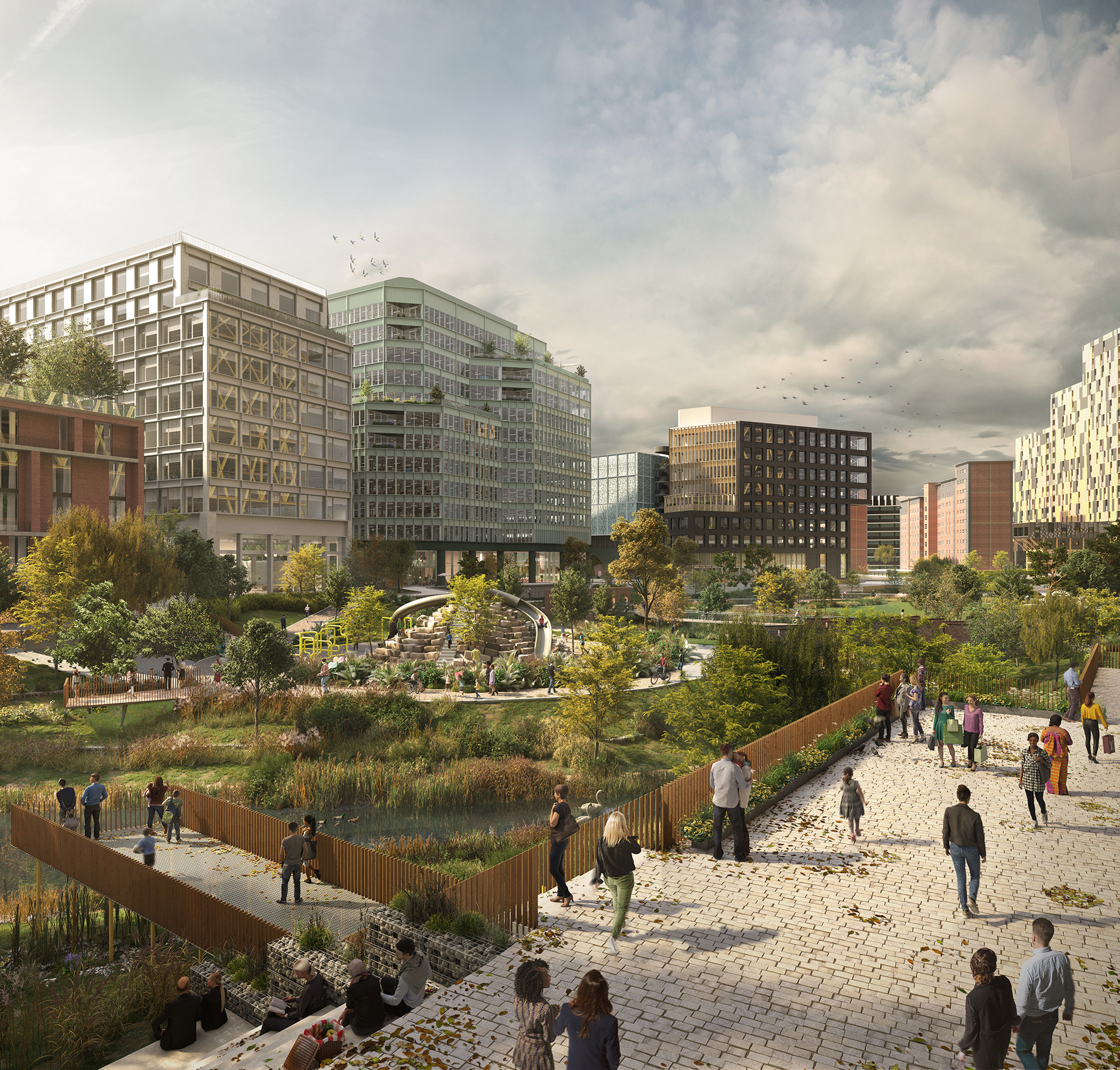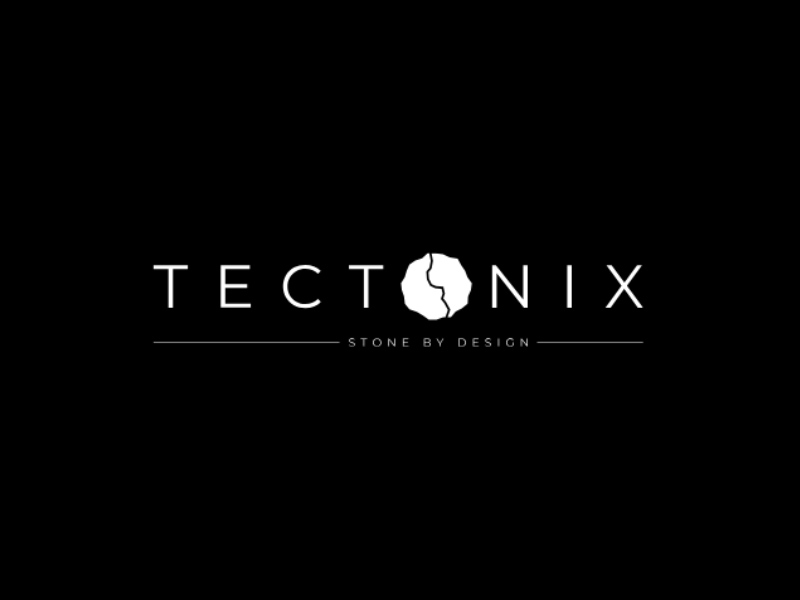Project showcase
Mayfield, Manchester Mayfield Partnership (U+I, Manchester City Council, Transport for Greater Manchester and LCR), Studio Egret West, Bennetts Associates, Morris + Co

Located adjacent to Manchester’s Piccadilly train station, at 24- acres and with a central, well-connected location, Mayfield is a significant urban regeneration opportunity. Yet, previous attempts to kickstart regeneration have stumbled. In 2016, the Mayfield Partnership (regeneration specialist U+I, Manchester City Council, Transport for Greater Manchester and LCR), was formed with a new brief to ensure the long dormant site reaches its potential. The Partnership’s masterplan for Mayfield will deliver 1,500 homes, 1.6m sq ft of workspace and retail, leisure and hotel space over the next 15 years, creating more than 10,000 full time office, retail and leisure jobs. Central to the plans is the creation of the first new public park in the city centre for 100 years.
In February 2020, the Partnership received planning consent for the first phase of development, including the park, 319,900 sq ft of commercial space and a multi- storey car park. The design capitalises on the site’s existing assets – the vast Mayfield depot, railway arches and the River Medlock – to create an environment for work, play and living. The new park and buildings will sit alongside a range of historic buildings that are being retained and redeveloped, helping to foster a sense of place, identify and community. While the investment in the 6.5- acre park will not generate a rapid commercial return, it is of such importance to the project that U+I took the decision to bring it forward in Phase One to ensure the new neighbourhood is formed around a public amenity offering access to greenspace, wellbeing and nature for workers, residents and visitors.
Describe the context and brief for this place?
Located adjacent to Manchester’s Piccadilly train station, the Mayfield district has suffered from 30 years of decline. During the industrial revolution it was at the beating heart of the textiles industry, in 1910 it became the location of a new railway station, and in the 1970s Mayfield took on new life as a major postal depot. But since the depot’s closure in 1987, this historically productive district has been largely unfrequented, attracting crime and negative associations. At 24-acres and with a central, well- connected location in the de facto capital of the north, Mayfield is a significant urban regeneration opportunity.
Yet, previous attempts to kickstart regeneration have stumbled. In 2016, the Mayfield Partnership (regeneration specialist U+I, Manchester City Council, Transport for Greater Manchester and LCR), was formed with a new brief to ensure the long dormant site reaches its potential. The Partnership’s masterplan for Mayfield was endorsed in 2018. It will deliver 1,500 homes, 1.6m sq ft of world class workspace and retail, leisure and hotel space over the next 15 years, creating more than 10,000 full time office, retail and leisure jobs. Central to the plans is the creation of the first new public park in the city centre for 100 years. In February 2020, the Partnership received unanimous planning consent for the first phase of development, including the park, 319,900 sq ft of commercial space and a multi- storey car park. Work will begin this autumn to transform this largely derelict brownfield site into a distinctive and imaginative mixed-use neighbourhood.
Describe your design for this place and how it will contribute to urban life?
The £1.4bn redevelopment of Mayfield will establish a distinctive, imaginative and diverse neighbourhood. The design capitalises on the site’s existing assets – the vast Mayfield depot, railway arches and the River Medlock – to create an environment for work, play and living. The new park and buildings will sit alongside a range of historic buildings that are being retained and redeveloped, helping to foster a sense of place, identify and community. While the investment in the 6.5-acre park will not generate a rapid commercial return, it is of such importance to the project that U+I took the decision to bring it forward in Phase One. This will ensure the new neighbourhood is formed around a public amenity offering access to greenspace, wellbeing and nature for workers, residents and visitors. It will also feature much needed blue space through the remediation of the River Medlock, which winds through the site but today is largely hidden by culverts.
The park will be overlooked by world class residential and commercial buildings, with the latter providing a range of spaces designed to attract both large established and small innovation-focussed commercial businesses, as well as community organisations. In Phase One, a 75,900 sq ft building will be home to scale-ups and innovation companies with a flexible ground floor that will be open to the public for wellbeing, leisure and co-working uses. The neighbouring 244,000 sq ft flagship office building will feature larger floorplates and landscaped roof terraces for more established volume occupiers. issuu.com/uandieverywhere/docs/mayfield_newspaper_singles
What was your process in coming up with the design? What research, consultation, workshops or conversations did you undertake?
From the inception of the masterplan, U+I and its partners have viewed Mayfield as a place, rather than a property development. The planning process has demonstrated how Mayfield is an exemplar of community-led regeneration. More than 750 people took part in a range of innovative consultation events held in and around Mayfield and the high footfall Piccadilly Gardens area, as U+I sought to fully understand what local communities need from the project. At Medlock Primary School in neighbouring Ardwick, the Partnership went beyond merely pitching a tent in the playground. It engaged with the school community in a meaningful way, including having children design and build a new piece of play equipment for the park, while allowing parents to ask more questions about the project and the opportunities it will deliver.
A dedicated Park Co-Creation event brought together user groups from across Greater Manchester – including sporting charities, environmental groups and health and wellbeing experts – in a series of focus groups to define what was needed from a major, green community amenity. Councillors on Manchester Council’s Planning Committee praised this approach in February 2020, when Phase One planning permission was unanimously granted. Committee member Cllr Jon-Connor Lyons said: “This is a fantastic application for a great amenity and a development that will protect our city’s heritage too. I must praise the consultation - you rarely see young people being involved to such a high level.”
How does your design respond to future changes in demographics, transport and the climate emergency to create a resilient place?
Mayfield Park will be inclusive and welcoming and will be managed with those who use it for the highest level of public benefit. The planting design of the park is being shaped with the future in mind, featuring biodiverse ecological areas and floodable meadows to accommodate climate- change scenarios. With quiet spaces for contemplation and sheltered areas, it will be a community asset which promotes wellbeing in all seasons. Leveraging the close proximity to Piccadilly station, Mayfield’s planned cycle hub will encourage sustainable commuting across the city, helping to meet Manchester’s ambitions for cycle transport.
The limited Phase One parking will be the only new parking provision developed across the 24-acre site. In the short term it will be equipped with electric vehicle charging and it has been designed with long term flexibility to be re-purposed, potentially as a hub for last mile deliveries. Social cohesion and inclusion is at the heart of the plans. The Partnership understands that to create a new neighbourhood which addresses the needs of a fast changing society, it must create a place not just for business, shopping, or living, but a place for all those things. These principles have already been baked into Mayfield through a worthwhile strategy which has reconnected Mayfield with the people of Manchester, bringing 330,000 people to the area in 2019 alone, through a wide range of cultural events – from ballet to BMX-riding – generating in excess of £10m for Manchester’s economy.
Festival of Pineapples
24-26 February 2026
Pineapples prize giving night
April
Pineapples at Festival of Place
10 June 2026
© The Pineapples - Tweak Ltd. 124 City Road, London, EC1V 2NX. Tel: 020 3326 7238



